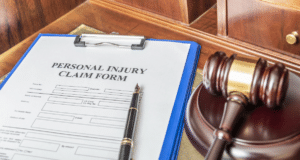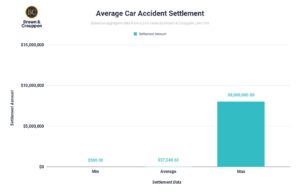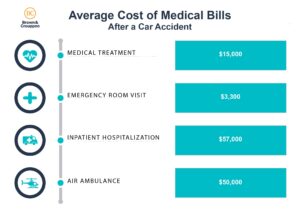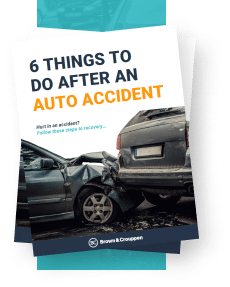Follow these steps to get more money from your car accident settlement:
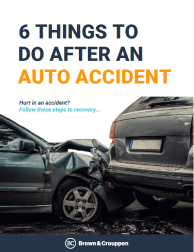

Use our legal checklist to learn what to do after an accident and understand key legal considerations for recovering financial compensation.
1. DON’T BE IN A RUSH TO SETTLE
This seems like a simple thing, but it’s not.
We understand the bind that being in a wreck can create – you’re hurt, your car is in the shop (or the junkyard), and you are taking time off work both to get to the doctor and to sort out all the paperwork. You are frustrated and put out (why did this have to happen?!), and in the midst of it all an adjuster from that friendly-sounding insurance company whose ads you see in Super Bowl commercials just called to take your statement. He is offering to pay your medical bills plus a few thousand dollars “for your pain and suffering.” He is not exactly lying, but neither is he giving you the full story. You would find out later that they were only offering to pay the medical bills you incur within the first three or six months and even then not the whole bill but only “reasonable charges.” (“You should be able to get that bill reduced.”) But the cash is real, and the pressure is on. You say you aren’t sure, you need to see how much treatment you need. He tells you that the offer is only good for right now. If you want to wait and get your treatment and then try to settle the case with him later, he cannot promise the same deal. The old saying flits through your mind: “a bird in the hand is worth two in the bush.” Its message is clear – hold out for more, and you might just end up with nothing. What do you do?
This scenario is real, and insurance adjusters really say these things to people. This is what insurance companies call an “early settlement offer,” and the goal is to settle your case as soon as possible – before you find out what your case is really worth or hire a lawyer to help you work it up. With some exceptions, you can almost always get more money than the insurance company is offering you at this early stage. A good attorney can help you increase the value of your case if you don’t give in to the pressure of an early settlement.
Likewise, don’t allow yourself to be rushed by your perception of how quickly a case should be concluded. Personal injury cases can take many months to settle, and some can take years before a successful resolution is reached. Every case is different, and how long your case takes depends greatly on the facts of the crash, the extent of your injuries, and the extent of the treatment you need. This leads us directly to the next point.
2. GET ALL THE MEDICAL TREATMENT YOU NEED
The main way to make sure you get the most money possible from a car accident is to make sure you seek medical attention for your injuries and follow through on any and all treatment that your doctors recommend.
Under the law, you (the injured person) have the burden of proving your damages – that is, proving how badly you were injured and how much medical care it took to treat your injuries. Let this process take as long as your doctors think is needed. It is only through complete and comprehensive medical treatment after a car accident that you can get the medical records, bills, and doctors’ opinions that will prove your case, and more importantly, get you the care you need to get better.
3. CONSIDER HIRING A LAWYER
Can you handle your case by yourself? Yes, but that does not necessarily mean you should. Once medical treatment has been completed, car accident cases often settle within 6-9 months. However, this can vary depending on many factors of the case, and can be difficult for the average individual to navigate.
Insurance adjusters know that an injured person handling their own case may not know as much about the settlement process or be able to negotiate as well as a lawyer or an industry insider, and therefore they may be more likely to settle for less. A good lawyer can bring a wealth of information and skills to a personal injury case, and with some exceptions, can help you get more for your case than you would otherwise.
4. DO NOT TAKE THE FIRST OFFER (OR THE SECOND)
Initial settlement offers are usually quite low, and insurance companies seldom make their best and top offer at the start of negotiations. In most cases, the insurance company can and will pay more than they originally offer in order to settle your case. Experienced personal injury lawyers know how to negotiate settlements, and can help you maximize compensation from damages.
But you should be mentally prepared for negotiations to take some time (see point #1). Remember, the insurance adjuster is not trying to pay you what your case is worth. They are trying to save the company money.
5. SEEK PROFESSIONAL LEGAL ADVICE ABOUT THE VALUE OF YOUR CASE
If you receive advice or secondhand information from friends or family about how much they think your case should be worth, take these suggestions with a grain of salt and remember that every case is different. Your case is not necessarily worth what your family member or neighbor got for their case. Your case will have a value that is unique to what you have gone through in the crash: how bad your injuries are, how much medical treatment you need, how much pain and discomfort you endured, how much work you missed, and other documentable losses.
Note: How much money can you get from a car accident for pain and suffering can range from $1,000 to upwards of $100,000 depending on the severity of injuries.
An experienced personal injury lawyer can help you understand better the factors that affect the value of your case. The typical car accident settlement amount is approximately $37,248.62. However, this may be higher or lower depending on the injuries involved and other unique case details.
A good personal injury lawyer often brings years of experience negotiating settlements and dealing with insurance adjusters, and can provide valuable insight and advice as you navigate the process of trying to maximize the value of your case. Additionally, having a lawyer working for you can sometimes change how the insurance company adjusts the claim, especially if the lawyer or firm has a reputation for fighting for their clients. Contact the legal professionals at Brown & Crouppen Law Firm if you have more questions about how to get the most money for your personal injury case.

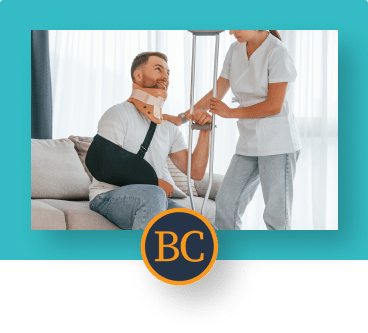
Were you injured in an accident due to someone else’s negligence? Get legal help from the most effective injury law firm in the Midwest.
MORE HELPFUL TIPS TO MAXIMIZE THE VALUE OF YOUR CAR ACCIDENT SETTLEMENT
- Stay at the scene – This seems like an obvious one, but do NOT under any circumstances leave the scene of an accident until the police have arrived, taken everyone’s statement and information, and have provided you with a traffic crash report number.
- Take photos of the scene and the vehicles – If you have time and it is safe to do so, take pictures of the scene of the crash and vehicles involved in the wreck. This will ensure that the facts of how the crash occurred can be proved, even if the vehicles are moved or someone questions or disputes what happened later on.
- Ask the police what happened or what the other drivers said happened – It’s okay to ask these kinds of questions (once you have provided your own statement to the police), and they can yield useful information. You may also choose to file a police report after being involved in an accident to further document what occurred.
- Ask independent witnesses for their contact information – In the context of a vehicle crash, an independent witness would be anyone who saw what happened and was not involved in the crash in any way, such as a bystander. Not all witnesses stay to talk to the police. You do not have to get a full statement from them, but there is nothing wrong with asking for their name and number so you can talk to them later.
- Avoid posting about the crash on social media – Unless you are trying to crowdsource information from your social network (such as recommendations for a trusted doctor, physical therapist, or personal injury lawyer), online posts about the crash usually do not help your case. However, you should be careful not to delete any posts about the accident that are already on your profile. This could constitute destroying or hiding evidence and can severely harm your case.

